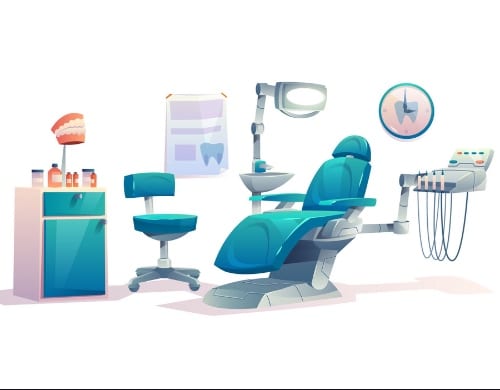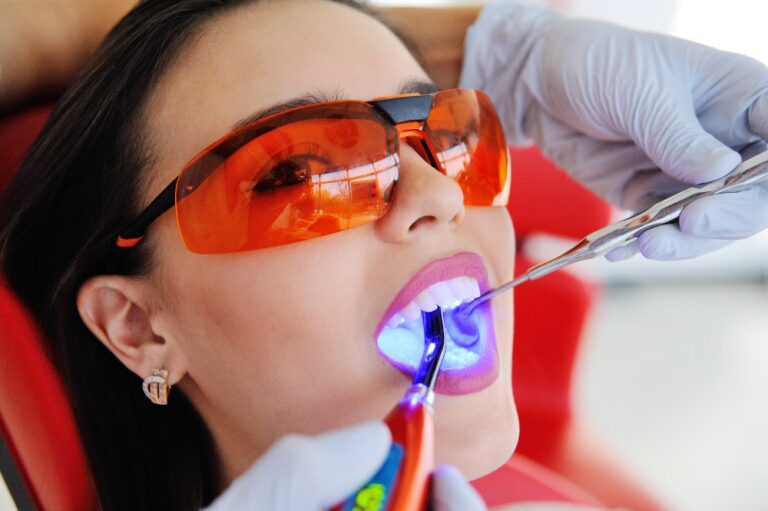Cosmetic Dentist Sydney
Bespoke Dental Solutions
Crafting Beautiful Smiles, Sparking Moments of Joy
Esteemed Credentials — You are in Good Hands
Dr Alps Thakkar is an acclaimed Australian Cosmetic Dentist and a Fellow at prestigious national and international institutions — setting her apart with unparalleled expertise and decades-long experience. Rest easy knowing you are being treated by a team led by a highly regarded general and cosmetic dentist in Sydney.
Dr Alps endeavours to be the best cosmetic dentist sydney and ascertains that every patient is met with ethical and compassionate care, in a sophisticated yet inviting atmosphere that will make you feel welcome.
Dr Alps Thakkar
BDS, Grad Dip Clin Dent
(Oral Implants), FRACDS FPFA FIADFE

Meticulous Planning and Treatment
Care, expertise and attention to the finest of details are at the core of every dental treatment we offer.
Whether you’re looking to enhance the appearance of your teeth or a general check up, we will look after you every step of the way.
Top Notch Equipment
Experience superior dental care with advanced technology for accurate diagnosis and comfortable treatment.
Soothing Practice
Enjoy a tranquil dental visit with our soothing atmosphere and gentle approach. Expert care with your comfort in mind.
Experienced Staff
Our professional staff is committed to providing excellent dental care and ensures personalized treatment and great results.

New Patient Journey — You've Made The Right Choice
From the moment you step into our dental clinic in Sydney, we’ll help you feel comfortable and at ease.
Our friendly staff will listen to your health goals and concerns, explain what to expect, outline payment and financing options, and answer your questions. Dr Alps will then conduct a comprehensive examination and outline a care plan completely personalised to your needs and smile goals.
Our entire team is committed to helping you prevent dental problems and achieve a healthy, beautiful, and confident smile.
With Dr. Alps Thakkar’s expertise, personalised approach, and use of modern, advanced treatments, you can be confident that your dentist appointment will be enjoyable and comfortable.

A Pampered Pleasant Experience
Modern Dentistry absolutely need not be anything less than a pampered pleasant experience. Don’t let dental anxiety/phobia hold you back from receiving the personalised care you deserve. Talk to us, we can help. Perhaps you will be surprised at how enjoyable and painless much of modern dentistry is!

Our Services
Proven Techniques, Reliable Results
Frequently Asked Questions
Do you offer cosmetic dentistry services for special events like weddings or graduations?
Yes, Dr Alps offers cosmetic dentistry services that can help you look and feel your best for special events like weddings, graduations, and other important occasions. Our cosmetic dental services include teeth whitening, porcelain veneers, dental implants, and more, all designed to enhance the beauty and functionality of your smile.
If you’re interested in aesthetic dentistry for a special event, we recommend scheduling a consultation with Dr Alps to discuss your goals and develop a personalized dental aesthetics treatment plan. Dr Alps can help you choose the right cosmetic dental treatments for your needs and budget, and ensure that you achieve the beautiful, confident smile you deserve in time for your event. Check out our General & Emergency Dentistry page for treatment timelines, and contact us today to learn more about our cosmetic dentistry services and schedule your consultation!
What is a cosmetic dentist, and what types of treatments do they provide?
A cosmetic dentist is a dental professional who specializes in improving the appearance of a patient’s teeth, gums, and overall smile. Cosmetic dentists offer a variety of treatments designed to enhance the aesthetic appeal of teeth, including porcelain veneers, teeth whitening, Invisalign clear braces, dental bonding, dental implants, dental crowns, and more.
A cosmetic dentist may also provide a range of other services to improve the overall health and function of a patient’s teeth, such as gum contouring, bite adjustment, and full-mouth rehabilitation. These procedures can help improve oral health and reduce the risk of tooth decay, gum disease, and other common dental problems.
If you’re interested in improving the appearance of your smile, Sydney Cosmetic Dentist Dr Alps can help you explore your options and find the right treatment to meet your unique needs and goals.
What is a dental implant dentist, and why should I choose one?
A dental implant dentist is a dental professional who has received advanced training and education in the placement and restoration of dental implants. Choosing a dental implant dentist in Sydney, such as Dr Alps Thakkar, can offer you several benefits, such as:
- Expertise: Dental implant dentists have the qualification, knowledge and skills to ensure your implants are placed correctly and function properly.
- Personalized care: They can provide you with a tailored treatment plan that meets your unique needs and goals.
- Comprehensive services: Dental implant dentists often offer a range of implant-related services, such as bone grafting and sinus lifts, to ensure the success of your treatment.
- High success rates: With their qualification, specialized training and experience, dental implant dentists typically have higher success rates for implant procedures compared to general dentists.
Dr Alps is an experienced Sydney dental implant dentist who can help you restore your smile and improve your oral health. Contact us today to schedule a consultation and learn more about our dental implant services.
What are some of the general dental services you provide?
Dr Alps provides a range of general dental services to help you maintain good oral health, including regular cleanings and checkups, fillings, root canal treatments, wisdom tooth extractions, and more. Check out our General and Emergency Dentistry page for more information.
If you have any questions or concerns about your oral health, we are always here to help. Dr Alps can provide personalised advice and guidance to help you maintain a healthy, beautiful smile for life. Contact us today to schedule your appointment.


